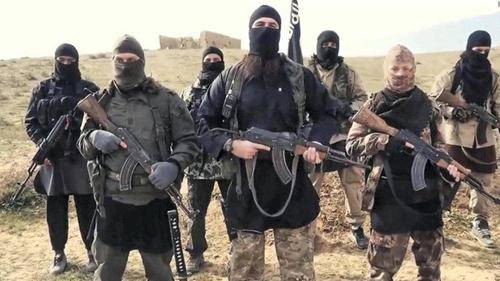
Turkey played a vital role in Islamic State weapons supply chain
Islamic State was able to build up a major arsenal of explosives, weapons and drones through a sophisticated procurement process that passed through Turkey despite “red flags”, a monitoring group said on Tuesday.
The Conflict Armament Research group said in a study that ISIS was able to build up a store of material for a weapons production programme in Iraq and Syria from 2015-2019 via individuals and companies in the south of the country and elsewhere.
ISIS was ousted last year from its former strongholds in Iraq and Syria, where it had wanted to build an extremist so-called caliphate – but experts warned that the knowhow and connections in its supply network have not gone away.
ISIS “procured key commodities through groups of linked, family-owned companies and individuals located near key border crossings into IS-held territory,” CAR said, adding these groups were centred around the towns of Siverek and Akcakale in southern Turkey.
CAR emphasised there was no evidence that these companies were “witting accomplices” to ISIS procurement efforts or guilty of any wrongdoing.
“They nonetheless acted as key junction points within the supply chains that provisioned ISIS forces,” it said.
They are based around two extended family groups in the area, it said.
It said that purchases of bulk explosive precursors and electronic items through this network had unusual features that should have raised “red flags”.
Companies made large purchases of products that were “incongruent” with their business activities, it said, pointing to how a small mobile phone shop purchased six tonnes of aluminium paste from a large chemical distributor.
Mike Lewis, co-author of the report, said the findings show how “surprisingly fragile” the procurement network was, relying on a small number of key individuals and businesses.
“With stronger due diligence, much of this trade might have been disrupted,” he said.
Namir Shabibi, CAR’s Head of Iraq Operations, warned that although ISIS forces may no longer hold territory, remaining cells have become increasingly active in the past year.
“Preventing their procurement efforts by spotting the kinds of red flags detailed in this report remains important for countering the group’s resurgence,” he said.
The report said that overall more than 50 companies, in over 20 countries, produced or distributed goods that ISIS forces subsequently used to make IEDs, drones and improvised weapon systems.
As well as Syria and Turkey, countries from where materials were obtained included Britain, Denmark and Spain.
“Goods moved remarkably rapidly though ISIS forces’ supply chains,” the report commented.
The report also said that from at least 2015, ISIS technicians also sought to build sophisticated drones powered by “pulsejet” engines by purchasing technical plans.
Sam Heller, an independent analyst and advisor to the International Crisis Group, said a video posted by ISIS at the end of last year showing its equipment indicated it had access to relatively few resources.
“So much of it seems inexpensive and relatively easily available which is key to the sustainability of the type of insurgency,” he said.
Source: National News





